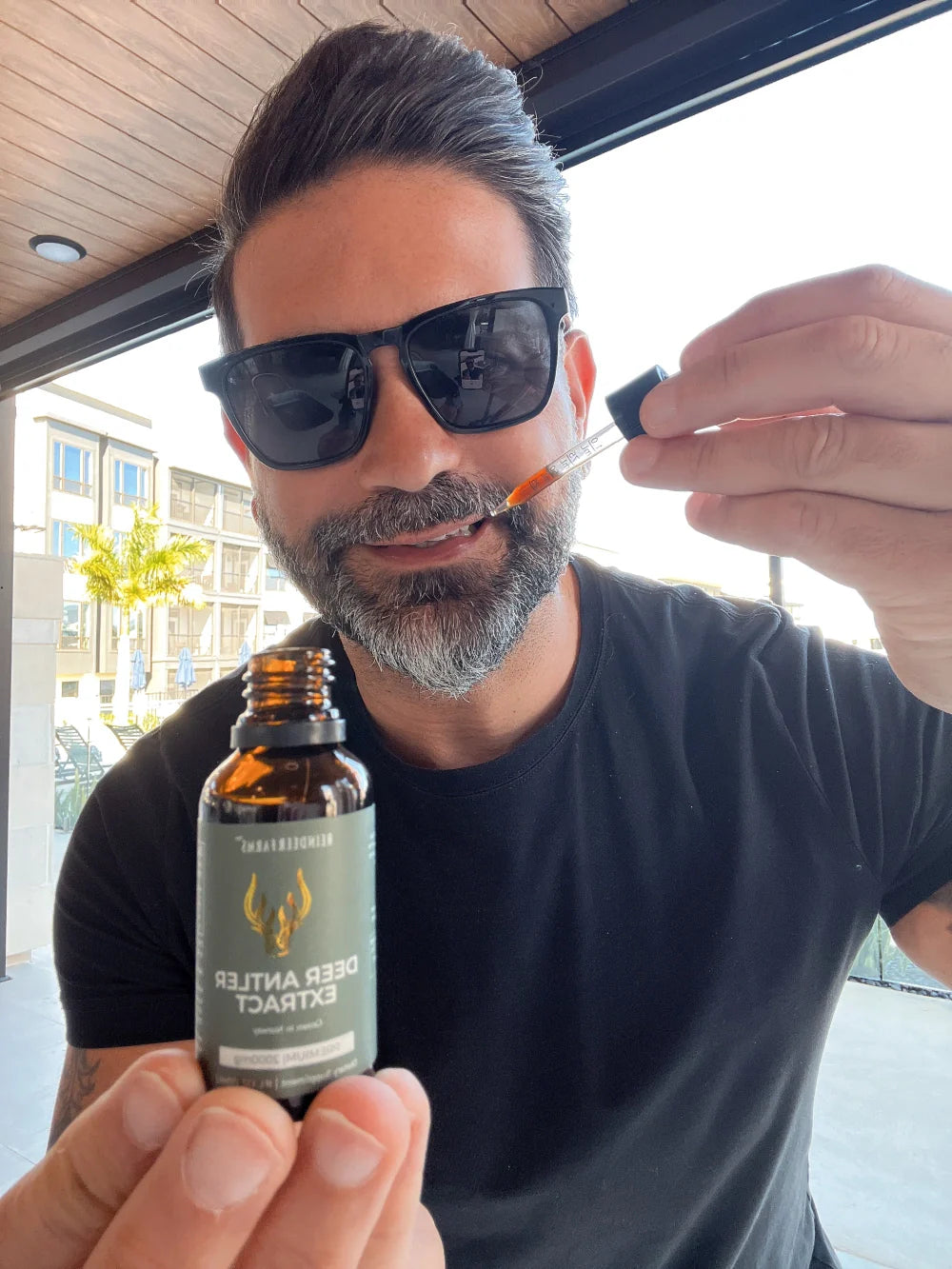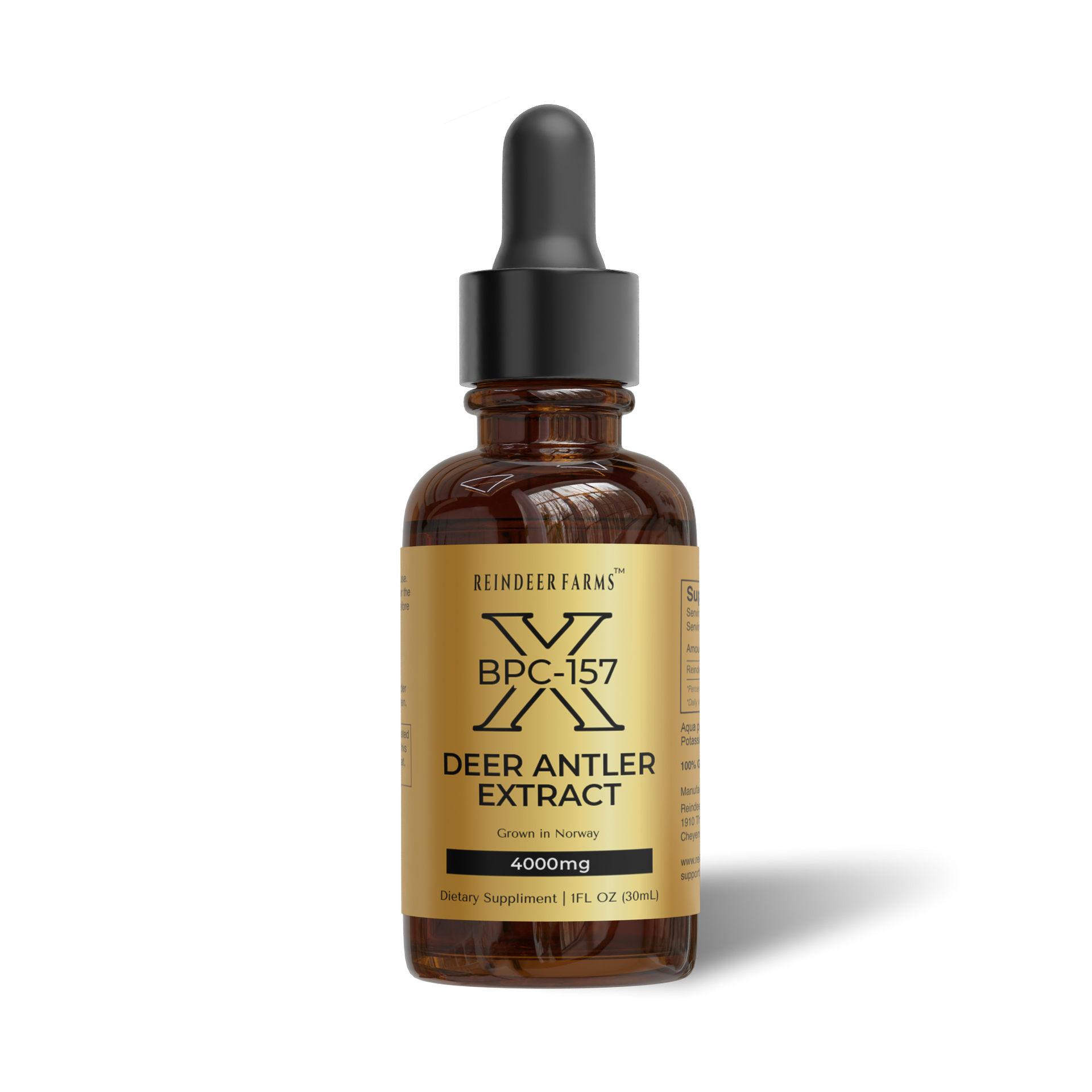
Key Takeaways
-
The effectiveness of 1 ml testosterone weekly depends on concentration—200 mg at 200 mg/ml concentration can support muscle growth, while 100 mg may be insufficient
-
Clinical studies show 100-200 mg weekly testosterone doses can increase lean muscle mass by 5-15% over 6-12 months when combined with resistance training
-
Individual factors including age, baseline testosterone levels, genetics, and training status significantly influence response to testosterone therapy
-
Proper medical supervision, blood monitoring, and integration with resistance training and nutrition are essential for safe, effective muscle building
-
Natural testosterone support through quality supplements may provide benefits without the risks associated with synthetic hormone therapy
Introduction: Understanding Testosterone Dosage and Muscle Growth
Testosterone plays a fundamental role in muscle development, serving as the primary anabolic hormone responsible for protein synthesis, muscle fiber growth, and strength gains. However, confusion often arises when discussing testosterone dosage, particularly the difference between volume (ml) and actual dose (mg). Many individuals ask whether 1 ml of testosterone per week is sufficient for building muscle, but this question cannot be answered without understanding the concentration of the testosterone solution.
The relationship between testosterone and muscle growth is complex, involving multiple physiological pathways and individual variables. This article provides evidence-based guidance on testosterone dosing for muscle building while introducing natural alternatives like those available at ReindeerFarms.com. Our goal is to deliver medically responsible information that helps readers make informed decisions about testosterone therapy and muscle development strategies.
The Science Behind Testosterone and Muscle Growth
Testosterone's Biological Role in Muscle Development
Testosterone exerts its muscle-building effects through several well-established mechanisms. The hormone binds to androgen receptors in skeletal muscle tissue, initiating a cascade of molecular events that promote muscle protein synthesis. According to research published in the Journal of Clinical Endocrinology & Metabolism, testosterone increases the rate of muscle protein synthesis by 20-30% within hours of administration¹.
The anabolic effects of testosterone extend beyond simple protein synthesis. The hormone enhances satellite cell activation, which contributes to muscle fiber repair and growth following exercise-induced damage. Additionally, testosterone improves muscle strength through neuromuscular adaptations and increases muscle endurance by enhancing mitochondrial function and oxygen utilization.
Clinical studies demonstrate that testosterone therapy can increase lean body mass, reduce fat mass, and improve muscle strength in hypogonadal men. A comprehensive review in the New England Journal of Medicine found that testosterone replacement therapy resulted in significant improvements in muscle mass and strength compared to placebo treatments².
Dose-Response Relationship of Testosterone
The relationship between testosterone dose and muscle growth follows a dose-response curve, meaning higher doses generally produce greater anabolic effects up to a certain threshold. Research conducted by Bhasin et al. demonstrated that weekly testosterone doses ranging from 125 mg to 600 mg produced proportional increases in lean body mass and muscle strength³.
However, individual variability significantly influences this dose-response relationship. Factors such as age, baseline testosterone levels, genetic polymorphisms in androgen receptor sensitivity, and training status all affect how individuals respond to specific testosterone doses. Younger men with naturally higher testosterone levels may require different dosing strategies compared to older men with age-related testosterone decline.
The concept of physiological versus supraphysiological dosing is crucial for understanding muscle-building potential. Physiological doses aim to restore normal testosterone levels (300-1000 ng/dL), while supraphysiological doses exceed normal ranges and carry increased risks of adverse effects.
What Does "1 ml of Testosterone" Actually Mean?
Testosterone Concentration and Its Impact on Dosage
Understanding testosterone concentration is essential for determining whether 1 ml weekly is sufficient for muscle building. Testosterone solutions come in various concentrations, most commonly 100 mg/ml, 200 mg/ml, and 250 mg/ml. Therefore, 1 ml could contain anywhere from 100 mg to 250 mg of actual testosterone.
For example, if using testosterone cypionate at 200 mg/ml concentration, 1 ml would provide 200 mg of testosterone weekly. This dose falls within the effective range for muscle building in many individuals. However, if using a 100 mg/ml concentration, 1 ml would only provide 100 mg weekly, which may be insufficient for significant muscle gains in most men.
The concentration directly impacts the anabolic potential of the therapy. Research indicates that doses below 100 mg weekly typically provide minimal muscle-building benefits, while doses of 150-200 mg weekly can produce meaningful increases in lean muscle mass when combined with appropriate training and nutrition protocols.
Types of Testosterone Esters Used in Therapy
Common testosterone esters include testosterone cypionate, enanthate, and propionate, each with different pharmacokinetic properties. Testosterone cypionate and enanthate have longer half-lives (7-8 days), making them suitable for weekly or bi-weekly injections. These esters provide stable blood levels when administered consistently.
The choice of ester affects dosing frequency and muscle-building effectiveness. Longer-acting esters like cypionate and enanthate maintain more stable testosterone levels, which may be beneficial for consistent anabolic effects. Shorter-acting esters require more frequent administration but may provide more precise control over blood levels.
Is 1 ml of Testosterone Per Week Enough to Build Muscle? Dosage, Optimization, and Monitoring
Understanding the Effective Testosterone Dose for Muscle Growth
Clinical evidence suggests that weekly testosterone doses of 100-200 mg can support muscle growth when properly implemented. A landmark study published in the American Journal of Medicine found that men receiving 200 mg testosterone cypionate weekly experienced significant increases in lean body mass (5.8 kg) and muscle strength over 20 weeks⁴.
When examining whether 1 ml of testosterone per week is enough to build muscle, the concentration becomes the determining factor. At 200 mg/ml concentration, 1 ml provides an optimal 200 mg weekly dose that aligns with effective muscle-building protocols. However, at 100 mg/ml concentration, 1 ml provides only 100 mg weekly, which may produce modest results.
Research demonstrates that testosterone therapy enhances muscle protein synthesis through multiple pathways. The hormone increases ribosomal RNA content in muscle cells, upregulates growth factor expression, and improves nitrogen retention. These mechanisms collectively contribute to the muscle-building potential observed in clinical trials.
Individual Factors Affecting Dosage Effectiveness
Age significantly influences testosterone therapy effectiveness for muscle building. Older men (>50 years) may experience greater relative benefits from testosterone therapy due to age-related declines in natural production. Younger men with adequate baseline testosterone levels may see less dramatic improvements from the same dose.
Baseline testosterone levels serve as a crucial predictor of therapy response. Men with severely low testosterone (<300 ng/dL) typically experience more pronounced muscle-building effects compared to those with borderline low levels (300-400 ng/dL). Genetic factors, including androgen receptor polymorphisms, also influence individual sensitivity to testosterone therapy.
Training status and exercise history affect how effectively individuals can utilize exogenous testosterone for muscle building. Trained individuals may require higher doses or more sophisticated programming to overcome adaptive plateaus, while untrained individuals may respond well to lower doses when combined with appropriate resistance training.
Optimizing Muscle Growth with Testosterone Therapy
Resistance training serves as the primary stimulus for muscle growth and must be combined with testosterone therapy for optimal results. Progressive overload principles should guide training programming, gradually increasing weight, volume, or intensity to continue challenging the musculature.
Adequate protein intake becomes even more critical during testosterone therapy due to enhanced protein synthesis rates. Research suggests consuming 1.6-2.2 grams of protein per kilogram body weight daily to maximize muscle-building potential. High-quality protein sources should be distributed throughout the day to maintain elevated amino acid availability.
Sleep quality and stress management significantly impact testosterone therapy effectiveness. Poor sleep can reduce both endogenous testosterone production and the anabolic response to exogenous testosterone. Aim for 7-9 hours of quality sleep nightly and implement stress-reduction strategies such as meditation or yoga.
Monitoring and Adjusting Testosterone Therapy Safely
Regular blood testing is essential for safe and effective testosterone therapy. Baseline measurements should include total testosterone, free testosterone, estradiol, luteinizing hormone, follicle-stimulating hormone, and comprehensive metabolic panel. Follow-up testing typically occurs at 3, 6, and 12 months initially, then annually.
Signs of inadequate dosing include persistent low energy, poor recovery from training, minimal muscle gains despite consistent effort, and suboptimal blood testosterone levels. Conversely, overdosing symptoms may include excessive aggression, sleep disturbances, elevated hematocrit, and cardiovascular changes.
Healthcare providers specializing in hormone therapy can provide personalized dosing recommendations based on individual response patterns. TRT clinics often employ more sophisticated monitoring protocols and can adjust therapy based on both subjective symptoms and objective biomarkers.
How ReindeerFarms.com Products Support Muscle Growth
For individuals seeking natural alternatives to synthetic testosterone therapy, ReindeerFarms.com offers high-quality reindeer antler velvet extract products that may support healthy testosterone levels and muscle development. These products contain naturally occurring growth factors, amino acids, and minerals that can complement muscle-building efforts.
Reindeer antler velvet has been traditionally used to support vitality and physical performance. The extract contains insulin-like growth factor-1 (IGF-1), which plays a crucial role in muscle protein synthesis and tissue repair. Unlike synthetic testosterone, natural supplements like reindeer antler velvet extract work with the body's existing hormonal systems.
 Premium Deer Antler Velvet Extract
Premium Deer Antler Velvet Extract
The concentration and purity of reindeer antler velvet extract determine its effectiveness. ReindeerFarms.com products undergo rigorous testing to ensure consistent potency and quality. The 100:1 extract ratio provides concentrated bioactive compounds while maintaining safety and tolerability.
Integration with existing fitness and nutrition plans enhances the effectiveness of natural testosterone support supplements. These products work synergistically with resistance training, adequate protein intake, and proper recovery protocols to optimize muscle-building potential without the risks associated with hormone replacement therapy.
What Are the Potential Risks of Testosterone Therapy?
Testosterone therapy carries several potential risks that must be carefully considered. Short-term side effects may include acne, fluid retention, mood changes, and sleep apnea exacerbation. More concerning long-term risks include cardiovascular complications, prostate enlargement, and suppression of natural testosterone production.
Cardiovascular risks represent a significant concern with testosterone therapy. Some studies suggest increased risk of heart attack and stroke, particularly in older men with existing cardiovascular disease. Regular monitoring of blood pressure, lipid profiles, and inflammatory markers is essential for early detection of cardiovascular complications.
Medical supervision throughout testosterone therapy is crucial for minimizing risks and maximizing benefits. Healthcare providers can monitor for adverse effects, adjust dosing as needed, and implement protective measures such as aromatase inhibitors or blood donation protocols when indicated.
The importance of balancing benefits and risks cannot be overstated. While testosterone therapy can provide significant muscle-building and quality-of-life improvements, these benefits must be weighed against potential adverse effects on an individual basis.
Conclusion and Responsible Testosterone Use
The question "is 1 ml of testosterone a week enough to build muscle" depends primarily on the concentration of the testosterone solution and individual factors. At 200 mg/ml concentration, 1 ml weekly provides an effective 200 mg dose that can support significant muscle growth when combined with proper training and nutrition. However, at lower concentrations, 1 ml may provide insufficient dosing for optimal muscle-building results.
Personalized dosing based on individual response, baseline hormone levels, and treatment goals represents the gold standard for testosterone therapy. Regular monitoring ensures both safety and effectiveness throughout the treatment process. For those seeking alternatives to synthetic hormone therapy, natural products like those available at ReindeerFarms.com may provide testosterone support benefits without the associated risks.
Responsible testosterone use requires medical supervision, realistic expectations, and commitment to comprehensive lifestyle approaches. While testosterone therapy can be an effective tool for muscle building, it should be viewed as part of a broader strategy that includes training, nutrition, recovery, and long-term health considerations.
Frequently Asked Questions (FAQs)
Is 1 ml of testosterone a week safe for everyone?
No, 1 ml of testosterone weekly is not safe for everyone. Medical evaluation and supervision are essential before starting any testosterone therapy.
What is the difference between testosterone volume and dose?
Volume (ml) refers to the liquid amount, while dose (mg) represents the actual testosterone content. The dose, not volume, determines therapeutic effectiveness.
How do different testosterone esters compare for muscle building?
Testosterone cypionate and enanthate are most commonly used due to their 7-8 day half-lives allowing weekly injections. They provide more stable blood levels compared to shorter-acting esters.
Is 0.5ml of testosterone a week enough?
At 200 mg/ml concentration, 0.5ml provides 100 mg weekly, which may produce modest muscle gains but is typically insufficient for significant muscle building in most men. Higher concentrations or increased volume may be necessary for optimal results.
References
-
Urban RJ, et al. Testosterone administration to elderly men increases skeletal muscle strength and protein synthesis. Journal of Clinical Endocrinology & Metabolism. 1995;80(4):1206-1213.
-
Snyder PJ, et al. Effects of testosterone treatment in older men. New England Journal of Medicine. 2016;374(7):611-624.
-
Bhasin S, et al. Testosterone dose-response relationships in healthy young men. American Journal of Physiology-Endocrinology and Metabolism. 2001;281(6):E1172-E1181.
-
Wang C, et al. Transdermal testosterone gel improves sexual function, mood, muscle strength, and body composition parameters in hypogonadal men. Journal of Clinical Endocrinology & Metabolism. 2000;85(8):2839-2853.



Comments (0)
Back to News